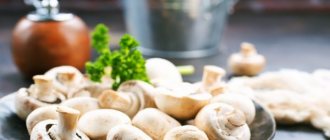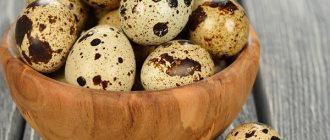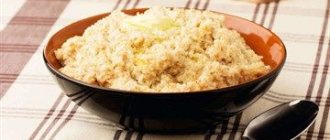Change in the taste of breast milk
The taste of milk treats, so necessary for every child after birth, can be influenced by various factors:
- disruptions of hormonal parameters;
- mood swings of a nursing woman;
- excessive physical activity;
- features of the diet.
Over the course of a day, the taste characteristics of breast milk change slightly, and the baby gradually gets used to this fact. Therefore, mommy may well eat garlic during breastfeeding only in small quantities, for example, 1 clove.
Komarovsky's opinion on the use of garlic by a nursing mother
The famous doctor Evgeny Komarovsky is quite categorical in relation to garlic during hepatitis B. In his opinion, it is better to exclude this product, as it can spoil the smell of milk.
True, with regard to all his nutritional recommendations, Komarovsky stipulates that they are not dogma. If a young mother really wants to eat something that doctors do not recommend, let her eat a small piece and carefully monitor the health and behavior of the baby. Nothing terrible happened, which means the product is acceptable in the case of this particular family. Although you should still not abuse it.
General recommendations
Full breastfeeding is providing the baby’s body with all the substances, minerals, and microelements it needs. Therefore, mommy’s diet must contain not only fruits, but also various vegetables, including onions and garlic.
They can be added to soups and salads. You just need to carry out heat treatment and not overuse it in quantity. For the first time, take only a small slice or clove. Look at the baby’s reaction: if there is increased gas production, strange rashes, or the child’s sleep suffers, it is better to avoid such ingredients.
In general, the presence of green onions in the diet does not affect the taste of breast milk. Some children even begin to eat better if their mothers allow themselves some deviations from the daily menu.
When not to eat garlic
If a woman is using blood-thinning medications, she should be careful when eating garlic, which, thanks to vitamin B3, reduces blood viscosity. This healthy vegetable protects against strokes, as it helps reduce the content of bad cholesterol in the blood vessels. On the contrary, garlic stimulates the production of healthy cholesterol.
You should avoid this spice if you have a stomach ulcer, kidney or intestinal diseases, or if you have gallstones.
Garlic generally does more harm than good. Therefore, answering the question whether a nursing mother can eat dishes with garlic, the answer is: it is possible, but, as with everything, moderation should be observed. All the beneficial vitamins and microelements that the mother’s body receives will be passed along with the milk to the baby.
You should not eat a vegetable if there is a strong odor from the milk or if there is a connection between eating garlic and the development of intestinal colic in a child, as well as allergic reactions. In other cases, you can eat this absolutely healthy vegetable without fear.
The benefits of garlic and onions
It is worth noting that the calorie content of these vegetables is minimal, so there is no need to worry that they will contribute to weight gain: there are no carbohydrates or fats in garlic and onions.
Among the beneficial properties of vegetables, the following should be noted:
- They help fight “bad” cholesterol.
- Reduce the risk of the formation of malignant neoplasms in the structures of the gastrointestinal tract.
- Adjust pressure parameters.
- Can increase the protective forces of the female body to fight viral infections.
Many mothers are afraid to use garlic while breastfeeding, citing an unpleasant odor. You can chew a little parsley after it, this will help freshen your breath.
In general, garlic and onions have a beneficial effect on the body of young mothers. If, however, doubts arise, it is better to consult a specialist.
Useful properties of garlic
The benefits of garlic are due to its rich chemical composition, which includes vitamins B, C, PP and other valuable compounds. The vegetable is a natural antibiotic, so it should be used as an auxiliary component for the treatment and prevention of diseases of bacterial origin.
| Name of valuable microelement | Main action |
| B1 | Strengthening nail plates, hair, relieving fatigue, psycho-emotional stress, increasing mood, stimulating intestinal function. |
| B9 | Improving blood quality, ensuring normal hematopoiesis, eliminating fatigue and depression. |
| PP | Vasodilation, blood thinning, stabilization of blood pressure, prevention of heart disease. |
| B2 | Reducing body weight, improving the functioning of the central nervous system, the appearance of hair, dermis, slowing down the aging process. |
| B6 | Improvement of the muscular, cardiovascular system, therapy, prevention of colds. |
| B5 | Ensuring metabolism, saturating the body with energy, stimulating intestinal peristalsis, normalizing the nervous system. |
| C | Formation and improvement of the body’s immune qualities, prevention of diseases of infectious and viral origin, improvement of mood, saturation of the body with energy. |
| I (iodine) | Increased immune qualities, normalization of the functioning of the thyroid gland, activation of mental activity. |
| Ca (calcium) | Formation, strengthening of bones, nail plates, teeth, ensuring metabolic processes, normal blood formation. |
| Mg (magnesium) | Reducing cholesterol levels, removing harmful elements from the body, reducing the likelihood of developing cancer, preventing sclerosis, heart and vascular diseases. |
| K (potassium) | Regulation of water balance in the body, strengthening the muscular and cardiovascular systems. |
| P (phosphorus) | Improving memory, stimulating brain activity, strengthening bones, tooth enamel, stabilizing kidney function. |
| Zn (zinc) | Wound healing, improvement of skin structure, improvement of brain activity, |
| Fe (iron) | Increasing hemoglobin levels, improving blood formation, saturating brain cells with oxygen, therapy, preventing anemia. |
We recommend reading: Dates for breastfeeding
Positive properties of garlic :
- Prevention of infectious diseases, colds.
- Increasing the protective qualities of the body.
- Lowering cholesterol levels.
- Stabilization of blood pressure.
- Normalization of the functioning of the digestive tract.
- Reducing the likelihood of malignant neoplasms.
- Dilation of blood vessels, protecting the body from heart attacks.
- Prevention of the development of thrush and other fungal infections.
In addition, this spice improves blood quality, normalizes blood pressure, saturates the intestines with beneficial bacteria, and improves the condition of hair and skin.
No amount will do any harm
So, the pediatrician approved the presence of a vegetable such as onions in the diet during breastfeeding. Women naturally have a question about how much it is permissible to consume so as not to cause a deterioration in the quality of milk and the health of the baby.
First of all, it is recommended to find out whether the baby has an allergic reaction to onions and garlic. For this purpose, nursing women need to eat no more than 1/3 of a clove, preferably in the morning, and carefully monitor the well-being of the newborn.
If there are no changes in the health of the baby, a gradual increase in the volume of the vegetable is permissible: up to a whole clove or a small onion per day. Vegetables can be included in the diet 1-2 times a week.
Similar steps to adjust nutrition can be taken a month or two after the baby is born, since in earlier periods his digestive organs are still weakened and may not be able to cope with the absorption of garlic.
Possible effect on the baby
The effect of garlic on a child’s body is complex. Several important areas can be identified:
- Positively affects appetite. This fact has been proven experimentally. That is, the baby not only does not refuse the breast, but begins to eat better and more actively.
The experiment was carried out in the 90s of the last century. Breastfeeding women took part in it. They were divided into two groups, the first was given food with garlic, the second - without. Results were noted within a week. Children of mothers from the first group began to eat much better than those from the second.
- The breastfeeding period is the best time to begin to develop your baby's ability to perceive a wide range of tastes. Garlic is very helpful in solving this problem, and this fact has also been proven by scientists.
- The substances contained in garlic strengthen the immune system, which is extremely important for a small person. Any disease at a tender age can result in serious complications, and everything that allows them to be avoided must be put into action.
- The components of garlic promote the growth and strengthening of bones, and the proper development of internal organs.
The positive effect of the plant on the body of mothers is also important. Everyone understands whether a vegetable can be eaten if it protects a woman’s body from infections. Getting the flu while holding a baby in your arms means putting not only yourself, but also your baby, in danger.
In addition, garlic’s ability to improve mood plays an important role. The baby needs a calm mother who successfully resists stress. This is one of the keys to his health.
Contraindications
Before including these products in your diet, you should consider a number of relative and absolute contraindications:
- The first include increased irritability and capriciousness of the baby when smelling or tasting garlic or onions;
- the occurrence of allergic conditions: observed in rare cases, but still possible;
- if, due to circumstances, a nursing woman has been prescribed a course of medications that have the ability to thin the blood, it is better to avoid taking garlic;
- In diabetes, garlic will contribute to hypoglycemia, so this product is rarely found in the diet of diabetics.
Letting a newborn try vegetables in their fresh state is absolutely unacceptable. Even a drop of juice can cause a severe burn to the mucous membrane or cause an upset stomach.
Contraindications and precautions
There are situations when garlic is contraindicated. They concern the health of the mother, not the child.
A woman should not eat garlic if:
- She has problems with blood clotting. The pungent-tasting plant prevents the formation of blood clots, that is, it thins the blood even more, and if bleeding occurs, it will be difficult to stop. You should also limit or completely eliminate its use if a woman is taking blood thinners. You definitely don't need a double effect.
- There is a history of diabetes or hypoglycemia because, oddly enough, it contains a lot of sugar.
- In epilepsy, it can provoke an attack.
- For gastrointestinal diseases.
Important! A baby can taste garlic only in the form of substances passed into breast milk. In its pure form, the vegetable is dangerous for him - even in minute quantities it can lead to burns of the mucous membranes and indigestion.
Allergy
If a mother or baby suddenly develops an allergy, it is better to immediately exclude the vegetable from the diet. Discard it, even if you are not sure that it was the cause of the problem.
It will be possible to include garlic in the diet again in a month or two, but subject to careful monitoring of the body’s reaction.
The appearance of flatulence
Flatulence in a baby is common. And since he doesn’t eat anything other than milk, he has such a reaction to his mother’s diet.
Could garlic be the culprit behind flatulence? Maybe, but not for everyone. It is easy to predict in advance what individual reaction a baby will give to a particular product. Most likely, his body will react to foods in the same way as his mother’s body. If everything is fine with the woman, then it will not cause negative effects in the baby. If the mother has problems after eating garlic, then the child will very likely have them again.
But, if the baby has flatulence and the mother feels well, it is better to temporarily abandon the vegetable. It definitely won't get any worse.
Another reason for flatulence may be that garlic was incorrectly introduced into the diet.
Proper introduction into the diet
In order to maintain a balance between the benefits of onions and garlic and a possible undesirable reaction to them on the part of the newborn, experts point to the observance of a certain order of their introduction into the diet of a nursing woman, namely:
- make sure there is no intolerance to the product: eat 1/3 of a clove of garlic and carefully monitor the child’s reaction;
- if the baby reacts well, he does not refuse the breast, his sleep does not suffer, and there is no gas formation; It is permissible to gradually increase the volume of the product in the diet, up to 1 piece. per day;
- do not experiment and know when to stop, choose dishes so that they contain a minimum amount of spices, including onions and garlic;
- If a nursing mother is taking any medication, ask your doctor about its compatibility with garlic;
- It is preferable to eat vegetables in the morning, when it is possible to monitor the baby’s well-being and take timely measures in case of indigestion.
Compliance with the above rules helps mothers diversify their diet and not harm the health of their babies.
What dosage is allowed?
Breastfeeding experts insist that garlic should be introduced starting with its consumption after heat treatment. Although garlic will lose some of its properties, it will not harm the baby.
If the child reacted calmly to the new product, then you can try eating fresh garlic. To begin with, take only a third of a small clove. Again, observe the reaction of the child’s body. If everything is fine, then you can continue to eat a clove of garlic per day. This is beneficial for both - mother and baby.
Impact on the body of mother and child
Experts highlight many beneficial properties of onions and garlic for the body of a young mother, so it is recommended to include these products in the menu fresh or as an additive to dishes:
- are natural antibiotics due to their bactericidal and antiseptic properties. They perfectly help fight viruses and bacteria, so doctors advise eating onions and garlic to prevent ARVI and influenza diseases;
- stimulate the functioning of the body's immune forces. Thanks to the content of vitamin C, the body's defenses are strengthened: the immune system copes faster with pathogenic microorganisms;
- reduce the growth of fungal flora, which is especially important during lactation, when the body is weakened and fungi multiply faster;
- garlic reduces the likelihood of the formation of malignant neoplasms of the gastrointestinal tract;
Scientists conducted studies in which people regularly consumed garlic. Based on the results, they came to the conclusion that the likelihood of cancer of the pancreas and stomach decreases.
- in moderate quantities helps to normalize the functioning of the digestive system.
The effect of foods on breast milk and the baby's body
In most cases, nursing mothers are afraid to include garlic and onions in their diet. It is recommended that before introducing a new product into the menu, consult a doctor who will advise you on how to properly consume these healthy vegetables. Before adding onions or garlic to dishes, you need to know what effect the substances included in the composition can have on the quality and taste of breast milk, as well as on the baby’s body:
- Eating onions or garlic affects the smell of mother's milk. Indeed, a specific aroma may appear. However, experts explain: if you eat a small amount of these foods per day, the baby may not notice it and will continue to breastfeed in the same way as before. However, some mothers insist that the child refused to attach to the nipple precisely after the introduction of these products into the woman’s diet. Therefore, doctors concluded: everything is individual and depends on the sensitivity of the baby;
A study was conducted to find out whether every baby really refuses to breastfeed if the mother ate onions or garlic. The results amazed the experts: not a single baby turned away from the nipple; on the contrary, their appetite improved.
- the taste of the nutrient fluid changes. The baby's body is very sensitive to the taste of mother's milk, because this is its main food, so it should be not only healthy, but also tasty. Breast milk is very sweet and babies eat it with such pleasure. However, garlic or onions may have a slight effect on the taste of the valuable liquid. Experts explain: if you eat a small amount of these products a day, your baby will not feel the difference;
- may cause digestive problems in a child. It also depends on each baby's individual response. For example, if a nursing mother ate garlic or onions and developed flatulence, then the same reaction is possible in the baby. Increased gas formation causes colic - painful sensations in the baby’s abdomen;
- The baby may be allergic to these products. Garlic and onions are not highly allergenic vegetables. But the risk of developing allergic reactions in the baby is still present. The fact is that a child’s unformed enzyme system can react this way to many foods. If this happens, the mother should stop adding onions and garlic to dishes and try again in a month or two. As the child grows older, he or she may react normally to foods with such additives. However, one should not exclude individual intolerance in the baby: in this case, it is better for a nursing mother to refuse to eat these products until breastfeeding is completed.
Experts recommend not eating raw onions and garlic. After heat treatment of products, the risk of allergies decreases.
If a child has digestive problems or allergic reactions after the mother included garlic or onions in the menu, these products should be excluded from the woman’s diet











